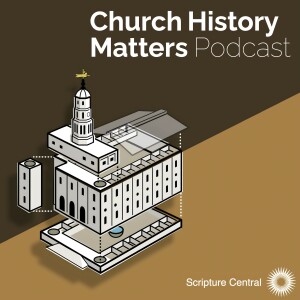

We began this study with a reminder again that what we are hearing in Colossians is the ideal, the goal for us, in our marriages and families and relationships. We also live by the comfort and help and forgiveness we have in Christ, with all the problems we have in this sinful world in living up to these high standards. This passage also does not speak about those who have never been married and do not have children. Other Scriptures address that situation and make it clear that single people are not inferior or superior and that the Lord cares for them just as much, too. They may even have some privileges, as Paul says about himself, in having less direct responsibility for a spouse and family and more time to focus on the Lord and serving others.
Paul then moves on, in Colossians 3:22-4:1, to address another great challenge of the sinful world of his day - the widespread reality of slavery. It was very common. There were continual wars and battles, with people conquering others and often making some or many of them their slaves. You see this often in the Old Testament.
Joseph and Daniel and many others were taken as slaves. In the Roman Empire, it is estimated that 30-40 percent of the people living in Italy were slaves. There were big slave rebellions, as with Spartacus and his followers, and eventually 6,000 slaves being crucified outside Rome, as a warning and example. Both slaves and masters were becoming Christians in the early Christian church, too.
Beginning with verse 22, Paul emphasizes the Christian qualities of humility and submissiveness that we have heard about with other relationships. There is also balance, in that Paul speaks both to slaves and masters and calls upon all to live in a Christ-like manner with each other. These are only “earthly” (literally, only “in the flesh”) masters and servants. The higher reality is that all believers are brothers and sisters in Christ and headed for an eternal inheritance together in heaven, through Christ and His mercy and payment of all sins. Slaves and servants are to obey and work with sincerity of heart and literally “from the soul” (this is a spiritual matter!), as if they were serving the Lord Christ and not just their earthly masters. They are not to work well only when someone is watching them. Likewise, masters are to treat their servants fairly and justly, especially since Christian masters know that they have a heavenly Lord and Master to whom they are also accountable, as His servants.
Both servants and masters are warned, too, that they carry with themselves any wrongdoing that they do, if they are ignoring Christ and avoiding His will and His help in trying do the right things. They have a Master Who sees all things and shows no partiality and is not swayed by bribes or how people’s faces look. (See verse 25 and Deuteronomy 10:17 and Acts 10:34, for example.)
Paul does not encourage rebellion by slaves. Neither does he approve of slavery. (See 1 Timothy 1:10, where “enslavers” are condemned.) Paul is advocating change that comes from within people, through Christ and His Word and love at work in them. (Paul mentions more than 20 fellow believers in Romans 16, quite a number of whom were likely still slaves, yet free in Christ. Some of them may have been serving the Roman Emperor himself, scholars say, because of names mentioned.)
In Colossians 4:9, Paul speaks of Onesimus, a “faithful and beloved brother.” Onesimus is actually a runaway slave, who came to faith in Christ, through the help of Paul and others in Rome. With his letter to the Colossians, Paul also sends a letter to Philemon, who was a slave owner and now has become a Christian and part of the church at Colossae. Paul sends Onesimus back to Philemon, too, for he had been his slave. Read the Letter to Philemon to see how Paul encourages Philemon to treat Onesimus as a brother in Christ and to forgive him and even set him free, so that he can now serve the church and Paul and others. It is the kind of change in the hearts of people through Christ that brought abolitionists, most of whom were Christians, to push for ending slavery in the United States. It is why Christians still push today for helping enslaved people in some countries, and to fight the exploitation of children and women and others in our own country still today, too.
Finally, we can apply the thoughts of Colossians 3:22-4:1 to the relationship of employers and employees, even now. We are to be serving employers and leaders, as if we were serving the Lord, and remembering that we need some order and authority in the work world for all of this to go well. Leaders are to be servant leaders, who really care for their employers and want the best for them, in justice and fairness. (If you have a Lutheran Study Bible, ESV version, see the full page, page 101, for more comments about slavery, as discussed in the Bible, too.) As always, everything is to be done in the name of the Lord Jesus Christ, giving thanks to Him and the heavenly Father (Colossians 3:17). That changes everything, even our work attitudes and relationships, with the Holy Spirit’s help and the love and peace and Word of Christ dwelling within us (Colossians 3:14-16).
More Episodes
All Episodes>>You may also like
Create Your Podcast In Minutes
- Full-featured podcast site
- Unlimited storage and bandwidth
- Comprehensive podcast stats
- Distribute to Apple Podcasts, Spotify, and more
- Make money with your podcast












